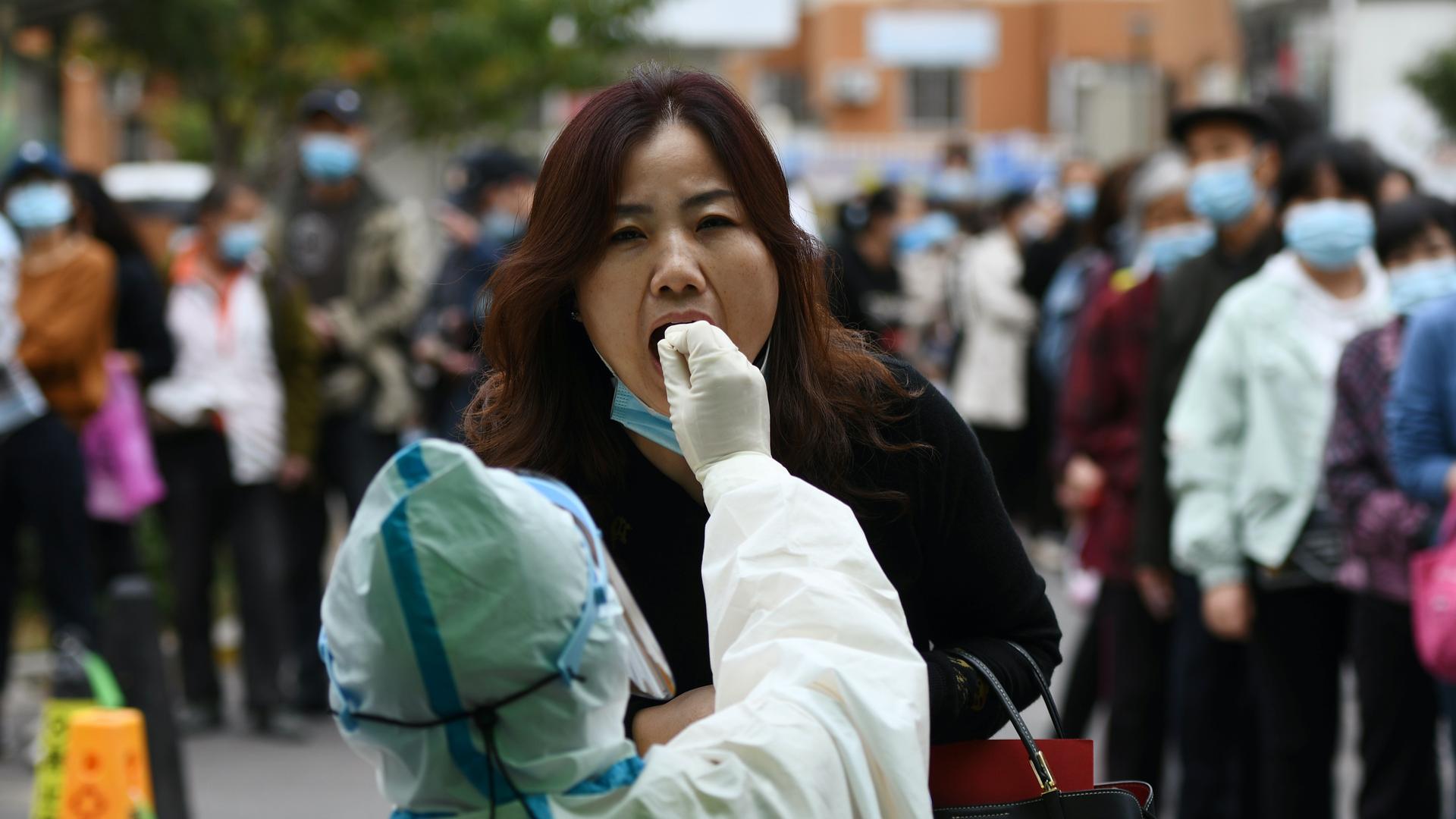In the northern Chinese city of Qingdao, a new outbreak of the coronavirus has been reported after 12 locally transmitted cases were found in a city hospital. So, on Monday, local officials announced a plan to test all 9 million residents.
Related: Buying masks from China can get complicated. This businessman connects buyers with sellers.
The loudspeaker at one outdoor testing site says: “Be patient, wear your mask, and keep distance.” Many people stand in a long line waiting for their turn.
Michael Brown, an American teacher, waited 1 1/2 hours on Monday for his COVID-19 test.
“There’s the registration area, there’s the line, and then there are … three testing tents. I think in one of these tents, they do the analysis.”
Brown says the process is pretty straightforward.
“You wait in line and then you register. Then you wait in line. When it’s your turn, you get into the tent and you say ‘ah’ open your mouth, you get a larynx swab and that’s it. It takes about one minute after you get in the tent. All you have to do is say “ah” and try not to gag — pretty simple.”
Related: Shanghai Disneyland reopens — with face masks, social distancing and QR health codes
The testing started late on Sunday and as of Tuesday morning, more than 3 million people have been through the process. What’s happening in Qingdao isn’t new. The entire population of Wuhan, all 11 million residents, were tested in May, and cities like Beijing and Urumqi also did large-scale mandatory testing over the summer in response to outbreaks.
Related: Lockdown in Wuhan takes a toll on people’s mental health
“This kind of large scale nucleic acid testing will be a powerful means to control future outbreaks. We need to continue to wear masks and take preventative measures.”
It seems mass testing has become China’s tool of choice to fight the pandemic. Doctor Qiao Guibin, a thoracic surgeon in Guangdong with his own TikTok channel, posted a video discussing the strategy.
“This kind of large-scale nucleic acid testing will be a powerful means to control future outbreaks. We need to continue to wear masks and take preventative measures.”
Bianca Wang, a Qingdao native who works as a journalist there, says things are still going on as normal in most parts of the region, although some apartment complexes have been put under quarantine.
“The city has pretty much remained open for business with schools and public transport running as usual.”
“The city has pretty much remained open for business with schools and public transport running as usual,” she said. But, in apartment compounds across the city, people in masks are lining up outside of tents. In Wang’s compound, where more than 10,000 people live, there are five testing spots and lines are short, maybe 20-people long. Wang says after the official statement that everyone would be tested, she kept getting reminders.
“Our companies, our schools, our apartment managers, our neighborhood committees — they all sent out reminders over text message and WeChat. Everyone knows about it and comes to get tested.”
“Our companies, our schools, our apartment managers, our neighborhood committees — they all sent out reminders over text message and WeChat. Everyone knows about it and comes to get tested.”
Related: Why Africa has seen such low COVID-19 death rates
Nighttime is busiest because most people go after work. Testing goes on until 11 p.m. People can check their results after 24 hours through a green-code health app on their phone that everyone in China must now use to access public buildings and to travel.
“The government has tighter control of its communities here, and we’re much more community-oriented here in China as well.”
This large-scale testing is possible in China in part due to big data monitoring that’s already set up to keep track of people’s movements in China.
“The government has tighter control of its communities here, and we’re much more community-oriented here in China as well,” Brown said.
For many in China, that level of control isn’t seen as a bad thing, especially during a pandemic response. For Wang, mandatory testing offers peace of mind.
“I think it’s our duty, but also we’re taking responsibility for our own health and the health of others,” Wang said.
No positive cases have been reported yet but testing will continue throughout the week.
